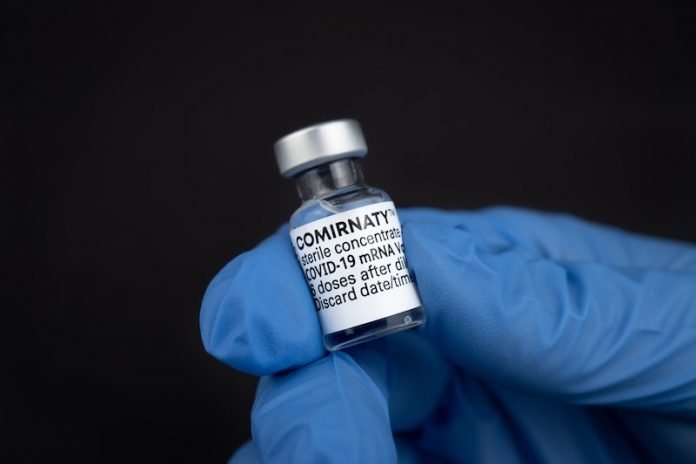
In a new study from Yale, researchers found that the Pfizer-BioNTech vaccine was more than 91% effective at reducing transmission of coronavirus in Israeli households before the emergence of the Delta variant.
However, the combined effect of the new variant and waning vaccine-induced immunity considerably reduced the vaccine’s effectiveness against transmission over time.
The findings are based on an analysis of medical information from 2.5 million people—about a quarter of Israel’s population.
Between June 1, 2020 and July 28, 2021, nearly 1.5 million people in the dataset received two doses of the Pfizer vaccine, and only about 6,500 tested positive for coronavirus following the second dose.
In the study, the team developed a household transmission model to assess the risk of infection based on an individual’s vaccination status and that of other household members.
Before the emergence of the delta variant in Israel, vaccination reduced the risk of being infected by 89% and lowered the risk that people with breakthrough infections would transmit the virus to other household members by 23%.
The team found after the emergence of the delta variant, however, vaccination no longer reduced the infectiousness of breakthrough cases and provided slightly less protection against infection.
Instead, people who had received their second dose of vaccine more than 3 months ago were only 40% less likely to be infected compared to an unvaccinated person and may have actually been more likely to transmit the delta variant to other households members if they were infected.
The analysis suggests that while vaccines provide good protection against coronavirus infection, this protection wanes over time.
Moreover, vaccinated people who got infected with the delta variant were just as infectious as unvaccinated cases.
This emphasizes the need for booster doses and for people who are infected to isolate regardless of whether or not they are vaccinated.
If you care about Covid, please read studies about the most effective face-mask practices to reduce spread of COVID-19, and existing drug that could prevent COVID death.
For more information about Covid, please see recent studies about the cause of severe disease and death in COVID-19, and results showing that with time and without masks, protection of COVID-19 vaccines decreases.
The study is published in Science and was conducted by Virginia Pitzer et al.
Copyright © 2022 Knowridge Science Report. All rights reserved.



